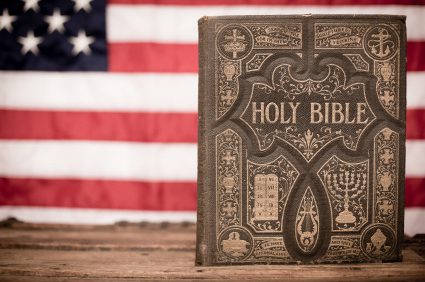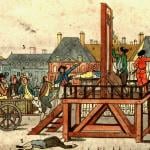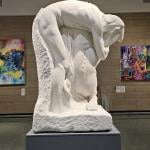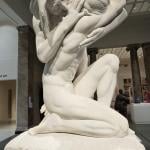 Is religion a private affair best kept to very quiet times in prayer closets, or should religion and the imperatives of the gospel impact every sphere of life in a public way?
Is religion a private affair best kept to very quiet times in prayer closets, or should religion and the imperatives of the gospel impact every sphere of life in a public way?
In my reading of Immanuel Kant’s “What Is Enlightenment?” he privatizes religion, or at least the church. The scholar of religion is to stick to the script and not critique religious symbols in his or her private duties, which entails his work as an ordained minister of the church; however, he or she is to engage critically religious symbols in the public domain of the university and society at large for the sake of further enlightenment in the broader community (See Immanuel Kant, “What Is Enlightenment?” in Kant Selections, ed. Lewis White Beck, The Great Philosophers series {New York: Macmillan Publishing Company, 1988}, p. 464).
It is worth noting that Kant also addresses the subject of how citizens are commanded to pay taxes and not resist their duty as private citizens; still, they may and should share their concerns over taxes they find detrimental to society’s well-being in their public roles (roles that would include scholarship and writing bearing upon the common good) aimed at furthering just civil practices. Moreover, Kant writes about how those employed in military service should not question military practices in their private roles as those employed by the military; nonetheless, they should critique those military practices they find detrimental to the common good in their public roles (including writing as scholars); as with pastors, private citizens and military personnel must refrain from criticizing their respective vocations and accompanying duties determined by their superiors in their occupations; however, beyond the reach of those private spheres, each one of them must submit fundamental concerns to “his own public” (“the world”) at large for their consideration in furthering enlightenment as it bears upon those occupations.
Does this distinction between private and public lead to hypocrisy or inconsistency? Not so, or not necessarily so, for Kant. To return to the office of the minister or pastor, it is not wrong for him or her to carry out their private vocation in the ecclesial establishment even though they critique the religious symbol in their public work as scholars, since there may be hidden truth behind or within the religious symbol that does not contradict the heart of religion (See the online source for this essay).
Before proceeding further with this post, it is important to note my appreciation for Kant’s concern for safeguarding order as it pertains to various domains or spheres within society. Moreover, I also value his concern for critiquing error wherever it is found for the sake of furthering enlightenment. Still, I take issue with his approach to religious symbols and how he differentiates between the external form and hidden truth or heart of the religious symbol. Is such a distinction or division appropriate? I find the distinction inappropriate based on my view that Jesus is revealed in hiddenness and hidden in revelation; one cannot separate the Christ of faith from the Jesus of history. Where does Kant’s distinction(s) lead?
Along similar lines, I also take issue with his view of the church as a private sphere. While someone might argue that Kant’s approach to religion and the church is similar to how he approaches the military, I would pause and ask that we give the matter further thought. As far as I can tell, Kant does not reinterpret or re-envision the military in terms of its quasi-sacred symbolism. Regardless of what Kant does, those downstream from him have often invested in the military and state sacred meaning and made allowances for messianic pretensions. All too often, I find in war shrines of classical and contemporary varieties here and abroad temples for the nations’ gods who do battle in service to the people.
While Kant was too nuanced a thinker and able critic of utilitarian-like ambitions of various sorts that serve the interests of majorities and those in power, nonetheless, I wonder about how certain trajectories of his thought might be applied by others. How does Kant’s approach to the church as a private sphere impact consideration of the imperatives of the gospel for society at large and the church as a public engaging other publics? What do you think: is the church a private domain for the cultivation of one’s conscience and piety, or does the law of Christ take public shape through the visible church as a political reality conceived according to the imperatives of the Gospel? Here it is worth noting that Jesus did not tell Pilate that his kingdom was private (and irrelevant to the public at large), but rather, that it was not of this world (John 18:36). I doubt very much that Jesus was distinguishing between an external form and hidden truth at this juncture. Given that Jesus’ kingdom is not of this world, his kingdom community—the church—is called to make public judgments in its witness to Christ’s gospel imperatives as salt and light in service to the world.
In closing, it is worth noting how nationalism’s rise in Germany in modern times led to spiritual subjectivism and the relativizing of the Gospel’s imperatives. The aim of such spiritualizing and relativizing of the law of the gospel was the advance of the “Volksnomoi” (the law of the German people). Only through privatizing Christ’s law could the move be made to equate God’s law with the people of Germany’s law. Religion’s relegation to the realm of the “Individuum” surfaced and grew through the influence of Neo-Kantianism in Germany.*
Going further, with nationalism’s rise in Germany, which Karl Barth referred to as “these recent troubled times,” one finds the invention of the “Volksnomoi.” Karl Barth, “Gospel and Law,” in Community, State, and Church: Three Essays, with an introduction by Will Herberg (Gloucester: Peter Smith, 1968), p. 91. Herberg claims that “like ‘proletarian justice’ in Russia,” the People’s Law or “Volksnomoi” “had become the slogan under which all the protections of custom and law were being contemptuously trampled under foot.” Herberg, introduction to Community, State and Church, p. 43. Over against Christ’s law (namely, the Gospel’s imperatives) which brings about people’s liberation, the “People’s Law” suppressed them. Barth’s reversing of the order of law and gospel whereby Christ is the goal of the law and its interpretation preserves the law and grounds it in the reality of Jesus Christ. Only then is there an appropriate safeguarding of law and order and preservation against an antinomian repudiation of the law that harms the common good (See for example, Barth, “Gospel and Law,” p. 91).
Does American Christianity today give in to the privatizing of religion, the church and the law of Christ? At the same time, does American Christianity promote the equation of God’s law with the law of the land? If so, how so? And why do these questions even matter?
___________
*For the point on spiritual subjectivism and the relativism of the Gospel’s imperatives, see also Alan J. Torrance, introduction to Christ, Justice and Peace: Toward a Theology of the State in Dialogue with the Barmen Declaration, by Eberhard Jüngel, trans. D. Bruce Hamill and Alan J. Torrance (Edinburgh: T. & T. Clark, 1992), p. xi. For the larger discussion on this theme, see the chapter “The Prophetic Word and the Secular State,” in Paul Louis Metzger, The Word of Christ and the World of Culture: Sacred and Secular through the Theology of Karl Barth (Grand Rapids: Eerdmans, 2003).
This piece is cross-posted at The Christian Post.













